Testing & Support
Where To Test
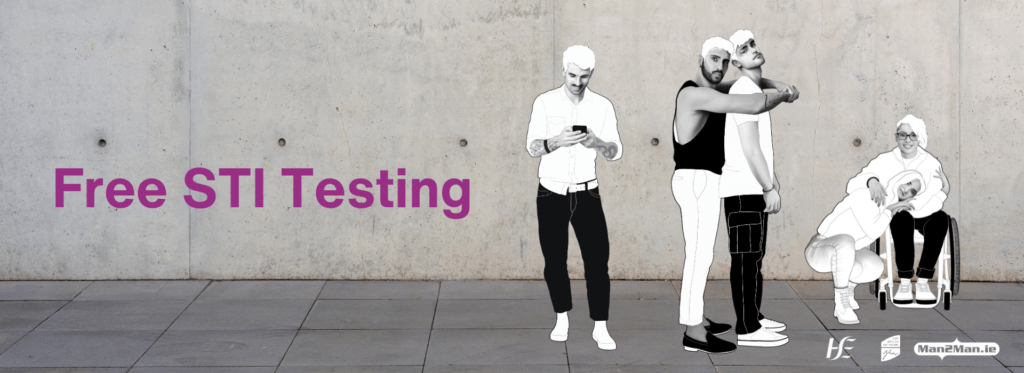
It has never been easier to test for STIs. You can test in-clinic, at home or avail of a rapid test.
In-clinic testing
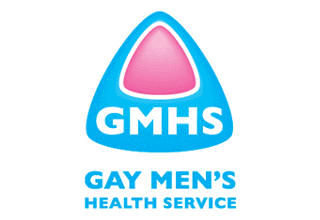
In-clinic testing is recommended if you have symptoms or it is your first time testing for STIs. You will be provided with a full screening and tested for Gonorrhoea, Syphilis, Chlamydia and Hepatitis. For a list of free HSE STI services across Ireland visit Sexualwellbeing.ie.
The Gay Men’s Health Service (GMHS) in Dublin provides full screening and counselling services. GMHS services are open and free to gay and bisexual men, men who have sex with men and the trans community.
The GMHS is located at the Meath Primary Care Campus, Heytesbury Street, Dublin 8. D08 HX9.
Visit www.gmhs.ie for more information and to arrange an appointment.
STI Home Testing
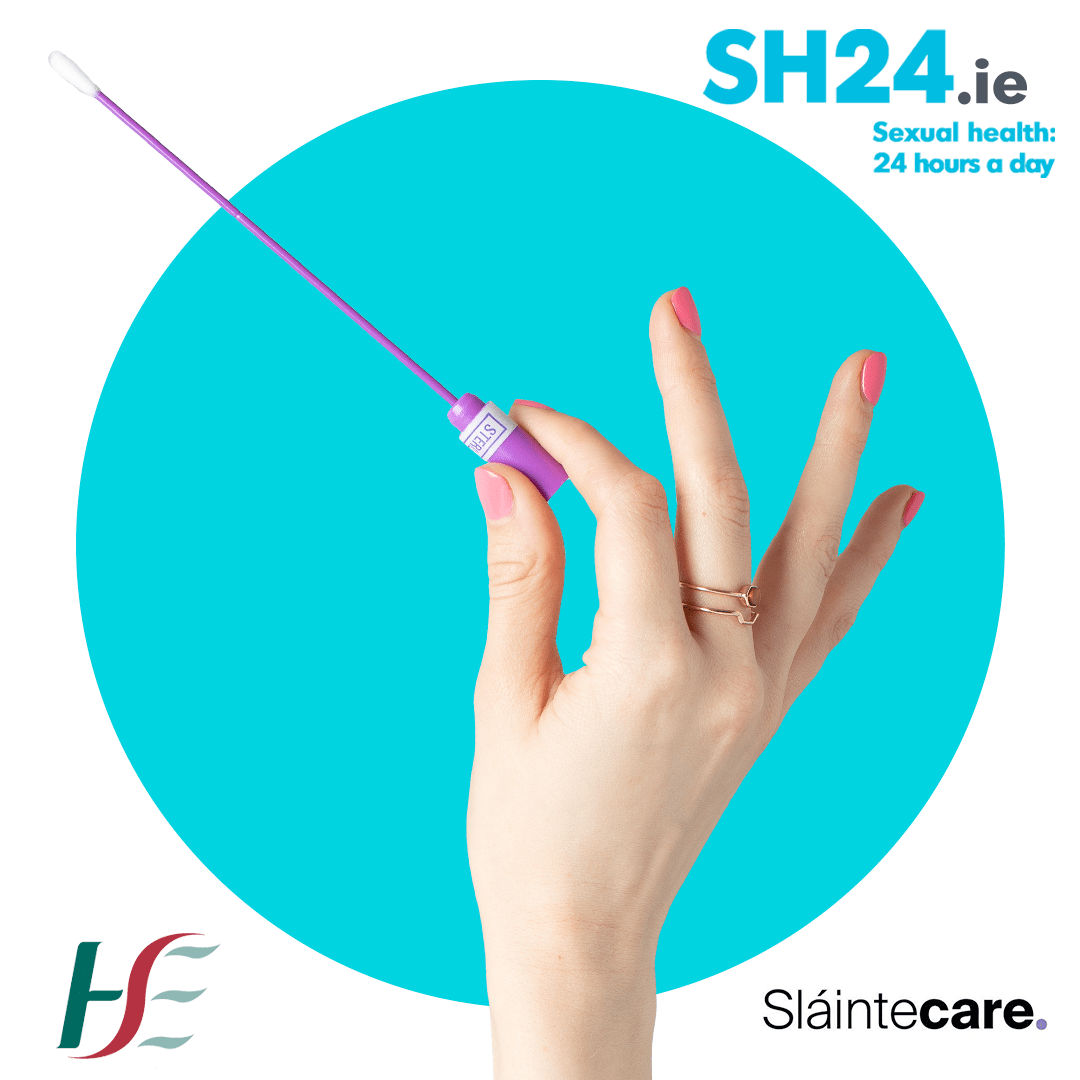
Free STI home testing kits are now vailable to order at www.sh24.ie for anyone aged 17+ living in the Republic of Ireland. If you are living in Northern Ireland please visit https://sh24.org.uk to order your home STI test kit.
You can now also order a free Hepatitis C Test kit from the HSE
You can also order an HIV self-test from MPOWER every Tuesday from 1pm. This free service is available to gay and bisexual men, men who have sex with men (gbMSM) including trans men and non-binary people.
Rapid Testing
Rapid testing is a testing method that provides quick results, typically within minutes or a short period of time, as compared to traditional laboratory-based testing which can take hours or days for results to be available.
Rapid testing offers several advantages, including quick turnaround time, immediate diagnosis, and the potential for immediate treatment or counselling during the same visit.
Some Rapid Testing Options:
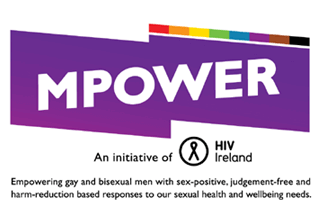
MPOWER
The MPOWER Programme is a suite of peer-driven community-level interventions which aim to achieve a reduction in the acquisition of HIV and STIs and an overall improvement of sexual health and wellbeing among gay, bisexual and men who have sex with men (gbMSM).
MPOWER provides a Rapid HIV Testing service that is available in gay bars, clubs, saunas and community centres across Dublin City. This is a walk-in service and does not require an appointment.
The free Rapid HIV Testing service is available at the following venues at the listed timings (No weekend services on Bank Holiday weekends):
- Tuesday: The George, 6pm – 8pm
- Wednesday: OutHouse, 6pm – 8pm
- Saturday: BoilerHouse, 3pm – 5pm
- Sunday: Pantibar, 4pm – 6pm
MPOWER Services include:
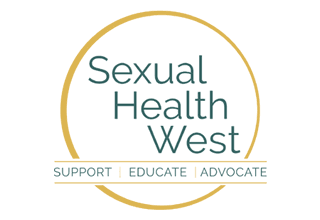
Galway
Sexual Health West Rapid HIV Testing
Sexual Health West offer free Rapid HIV and Syphilis testing across the region at various locations. The test involves a simple finger prick and gives a result in less than five minutes.
To book an appointment or find out their next testing dates contact them on 091 566266 or email info@sexualhealthwest.ie
Address: Sexual Health West, Ozanam House, St. Augustine Street, Galway H91 V3PV

Limerick
GOSHH Ireland, Limerick, Rapid and Confidential HIV and Hepatitis Testing
GOSHH Ireland provides Rapid HIV testing. To make an appointment for a test, please email knownow@goshh.ie or call (061) 314354.
At GOSHH, you will receive your test results before you leave your appointment. If your result is reactive, you will be referred to your local STI clinic for further care.
Visit GOSHH at Redwood Place, 18 Davis St, Limerick, V94 K377
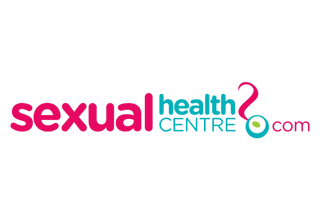
Cork
Sexual Health Centre Cork
At the Sexual Health Centre, you can do a Rapid Test for HIV. You will get your test results immediately with the rapid testing service. The test is free and confidential and involves a simple finger prick.
Testing is available by appointment or online booking system or on a walk-in basis.
To make an appointment, call 021-4276676, visit www.sexualhealthcentre.com or email info@sexualhealthcentre.com.
Gay Men’s Health Service (GMHS).
The new GMHS service is based at Meath Primary Care Centre, Heytesbury Street, Dublin 8. D08 HX97 Tel: 01 9212730.
The GMHS is currently taking bookings for both symptomatic and asymptomatic STI testing. Click here to book your appointment at GMHS.
For more information please visit https://www.hse.ie/eng/services/list/5/sexhealth/gmhs/
GUIDE Clinic, St. James’s Hospital, James’s Street, Dublin 8. Tel: 01 416 2315 or 01 416 2316. Booking available at http://www.guideclinic.ie
STI Clinic, Mater Hospital, Eccles Street, Dublin 7. Tel: 01 803 2063. Booking information available at https://www.mater.ie/patients/sti/
Carlow District Hospital,
Carlow
- Telephone: 051 842646
- By appointment only: Tuesdays 12.30pm 2.30pm
- How much: Free of charge
Portlaoise STI Clinic,
St Fintan’s Hospital, Dublin Rd, Portlaoise, Co Laois
- Telephone: 086 8591273
- By appointment only: Tuesdays 5:15 – 6.30pm
- How much: Free of charge
Midland Regional Hospital,
Mullingar, Co. Westmeath
- Telephone: 086 416 9830
- By appointment only: Thursdays 9:00am to 1:00pm
- How much: Free of charge
Louth County Hospital,
GUM Clinic, Outpatients Dept, Dublin Rd, Dundalk, Co Louth
- Telephone: 086 8241847
- By appointment only: Tuesdays 2pm-5pm and Fridays 1.30pm -4.30pm
- How much: Free of charge
Our Lady of Lourdes Hospital,
Drogheda, Co. Louth
- Telephone: 086 824 1847
- By appointment only: 1st and 3rd Fridays of each month, 9:00am to 11:30am
- How much: Free of charge
Mid-Western Regional Hospital,
Ennis, Co Clare
- Telephone: 061 482382
- By appointment only: Monday 9:30am
- How much: Free of charge
South Infirmary Victoria University Hospital,
Old Blackrock Road, Cork
- Telephone: 021 4966844
- By appointment only: Monday, Tuesday & Thursday, 9am-12:30pm, Wednesday 2pm-4.30pm
- How much: Free of charge
Youth Health Services,
Penrose House, Penrose Quay, Cork
- Telephone: 021 4220490
- Preferably by appointment: Tuesday & Friday 9am – 1pm
- How much: Free of charge
- For young people aged 21 and under
KNOWNOW LIMERICK
University Hospital Limerick, Dooradoyle, Limerick
- Telephone: 061 482382
- By appointment only: Tuesday, Thursday and Friday 9am. Thursdays 2pm
- How much: Free of charge
Mid-Western Regional Hospital,
Nenagh, Co Tipperary
- Telephone: 061 482382
- By appointment only: Wednesday 2:30pm
- How much: Free of charge
South Tipperary General Hospital,
Clonmel, Co. Tipperary
- Telephone: 051 842646
- By appointment only: Wednesdays 2pm.
- How much: Free of charge
Waterford Regional Hospital,
Waterford City
- Telephone: 051 842646
- By appointment only: Mondays 9am-11am and 2pm-3.30pm. Tuesday to Friday, 9am-11am
- How much: Free of charge
Tralee Regional Hospital,
Tralee, Co Kerry
- Telephone: 021 4966844
- By appointment only: Every second Thursday
- How much: Free of charge
University College Hospital,
Infectious Disease Clinic, Newcastle Road, Galway
- Telephone: 091 525 200
- Walk in Clinic: Wednesday and Friday 8:50am
- Appointments service: Monday from 2pm
- How much: Free of charge
Portiuncla Hospital,
Ballinasloe, Co Galway
- Telephone: 090 9648372
- By appointment only: Thursday 2pm-5pm
- How much: Free of charge
Mayo General Hospital,
Humbert Way, Castlebar, Co Mayo
- Telephone: 094 9021733
- By appointment only: Tuesdays 9.30-1pm
- How much: Free of charge
Sligo Regional Hospital,
GUM Clinic, The Mall, Co Sligo
- Telephone: 071 9170473
- By appointment only: Tuesday and Thursday from 6pm
- How much: Free of charge
Letterkenny General Hospital,
GUM/STI Clinic, Letterkenny, Co Donegal
- Telephone: 074 9123715
- By appointment only: Thursday 5.30pm to 9pm
- How much: Free of charge
Monaghan General Hospital,
GUM Clinic, Outpatients Dept, Monaghan, Co Monaghan
- Telephone: 086 8241847
- By appointment only. Tuesday 9am to 12:30pm
- How much: Free of charge
Royal Group Hospital,
GUM Clinic, Level 3 Outpatients Dept, Grosvenor Road, Belfast BT12 6BA
- Telephone: 028 9063 6477/6483 (048 from ROI)
- By appointment only: Monday, Wednesday, Thursday & Friday from 9am.
- How much: Free of charge
The Rainbow Project,
LGBT Centre, 1st Flr, Old Memorial Hse, 9 -13 Waring Street, Belfast
- Telephone: 028 9031 9030 for an appointment (048 from ROI)
- Website: www.rainbow-project.org
- How much: Free of charge
The Rainbow Project,
in partnership with the Royal GUM clinic, organise free, confidential sexual health testing and support clinics at various community venues:
- The Rainbow Project’s offices at the LGBT Centre
- Pipeworks Sauna, Belfast
- Outside Sauna, Belfast
- Cage Sauna, Derry
- The clinics operate a walk-in service (no appointment necessary). Check www.rainbow-project.org for scheduled dates/times.
Portadown Health and Care Centre Clinical Zone,
Ground Floor, Tavanagh Ave, Portadown, Armagh
- Telephone: 028 3083 4215 (048 from ROI)
- By appointment only: Nurse-led clinic on Tuesday 9am to 4pm
- How much: Free of charge
Causeway Hospital, GUM Clinic,
Outpatients Department 2, 4 Newbridge Road, Coleraine, BT52 1HS
- Telephone: 028 7034 6028 / 7872 (048 from ROI)
- Walk in clinic: Tuesday evenings, register by 5pm and Friday afternoons, register by 1:30pm
- Appointments services: Nurse-led clinic Monday, Tuesday, Thursday & Friday 9:30am – 12:30pm.
- How much: Free of charge
Altnagelvin Area Hospital,
Anderson House, Glenshane Road, Derry BT47 1SB
- Telephone: 028 7161 1269 (048 from ROI)
- By appointment only: Monday 9:30am – 11:30am & 4pm – 7pm, Tuesday, Wednesday & Thursday 9:30am – 11:30am & 1:30pm – 4pm, Friday 9:30am – 11:30am
- How much: Free of charge for residents of the North. People coming from the Republic of Ireland would be charged £205.
Tyrone County Hospital,
Sexual Health Clinic, Outpatients Dept, Omagh, BT79 0AP
- Telephone: 028 8283 3189 (048 from ROI)
- By appointment only: Wednesday 1pm – 6pm
- How much: Free of charge
Down Hospital,
Sexual Health Clinic, Outpatients Dept, 2 Struell Wells Road, Downpatrick, BT30 6RL
Telephone: 028 4483 8133 (048 from ROI)
- By appointment only: Monday 9am-12pm; Wednesday 3:30pm – 6:30pm & Friday 8:30am – 12pm
- How much: Free of charge
Bangor Community Hospital,
Castle Street, Bangor, County Down
- Telephone: 028 4483 8133 (048 from ROI)
- By appointment only: Nurse-led clinic on Monday 9am to 12pm
- How much: Free of charge
John Mitchell Place Health Centre,
GUM Clinic, Hill Street, Newry, BT34 2BU, Co Down
- Telephone: 028 3083 4215 (048 from ROI)
- By appointment only: Monday 2pm – 5:30pm; Wednesday & Friday 9am – 12:30pm
- How much: Free of charge





